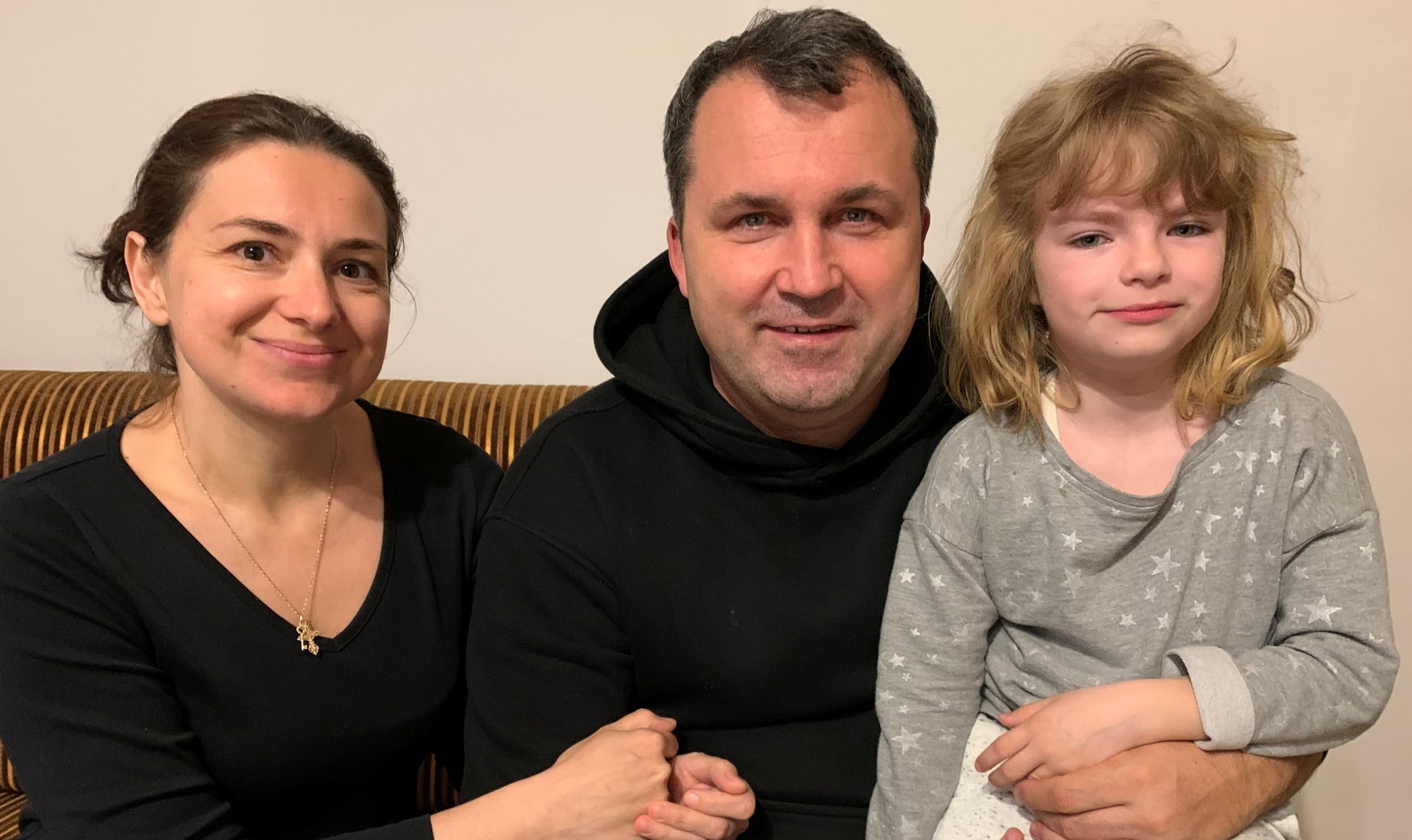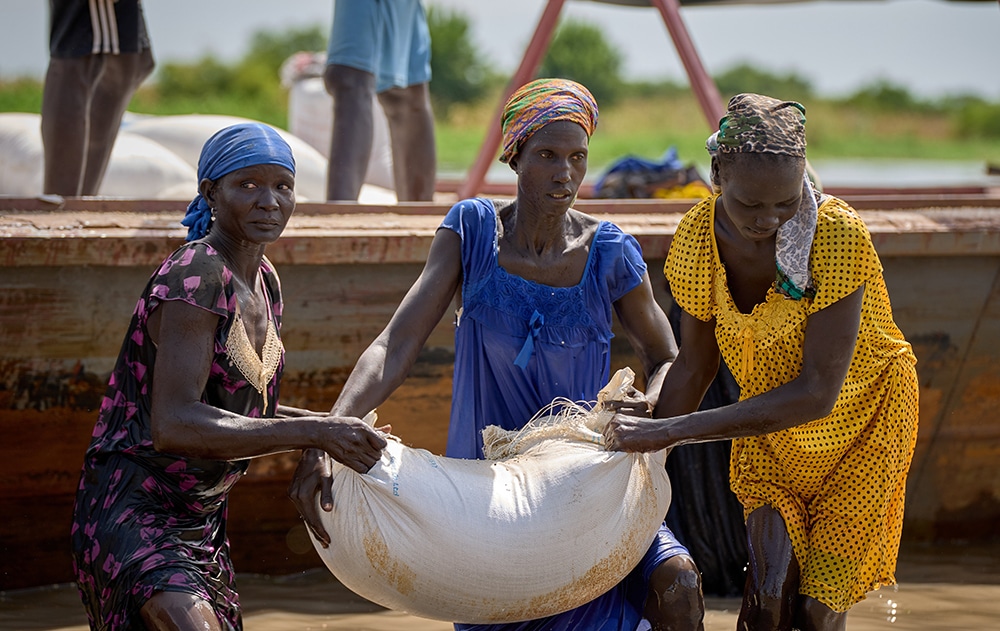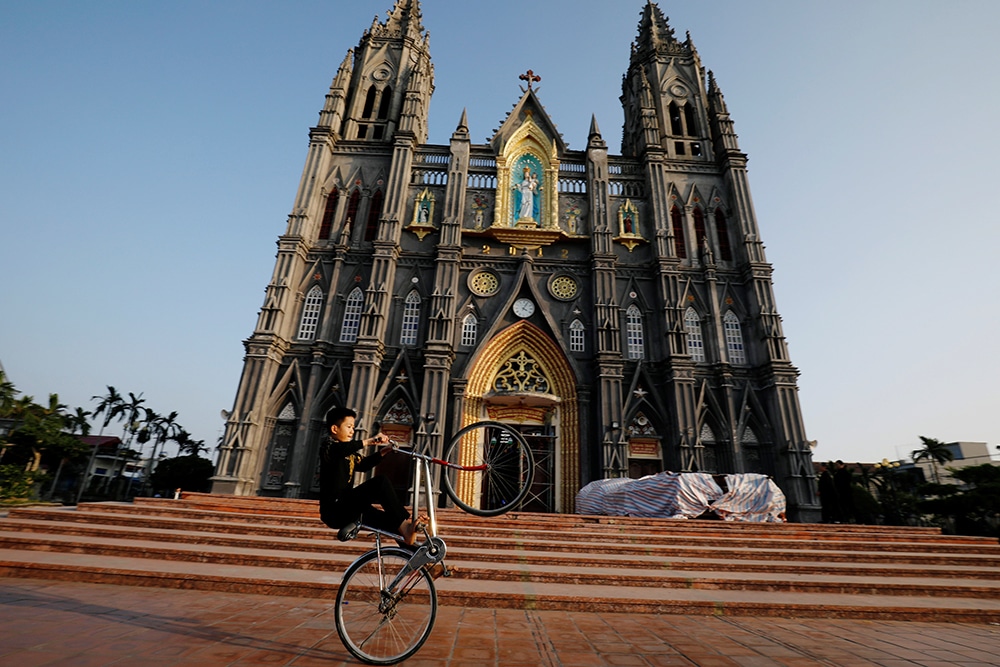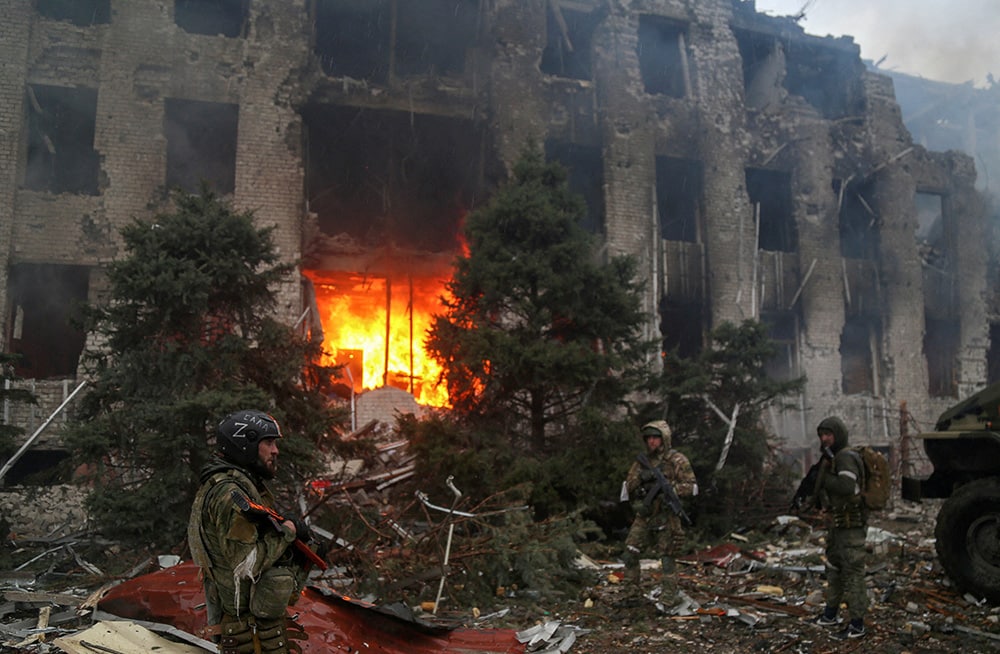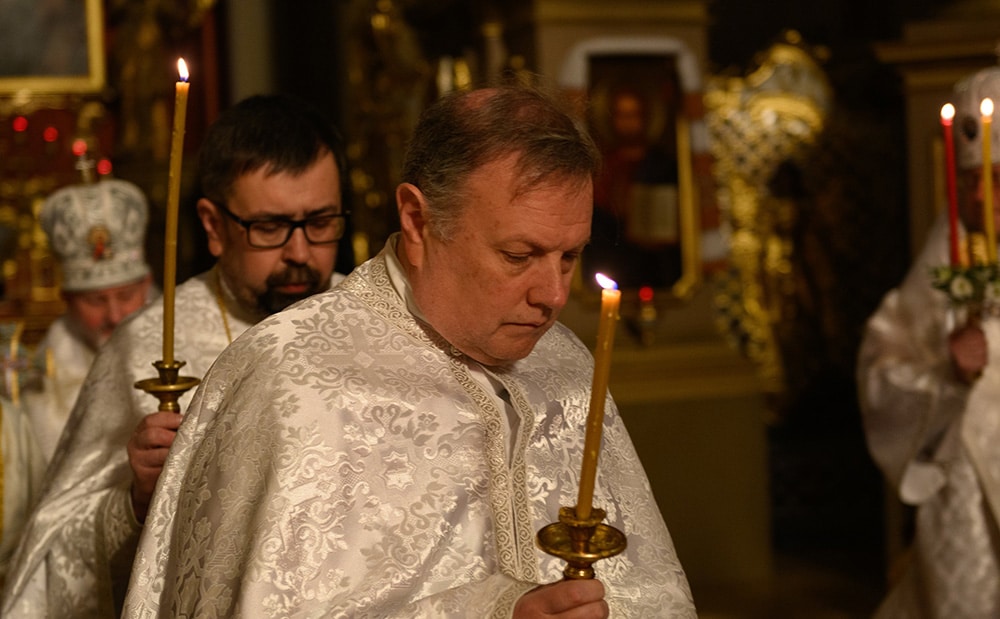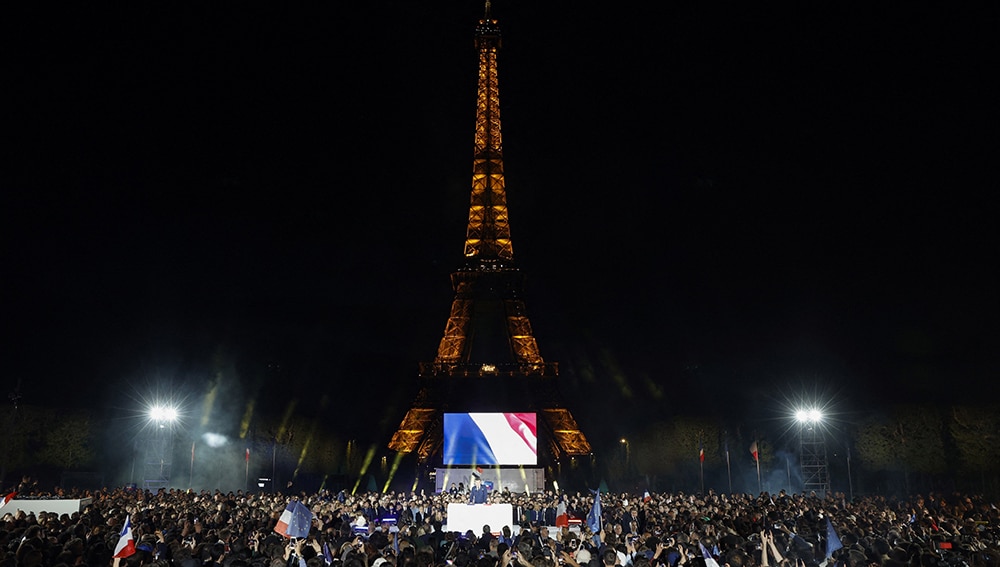WARSAW, Poland (CNS) — Serhii Bolshov knows he and his family do not fit most people’s idea of “refugees,” and, in fact, they don’t fit his own stereotype either, he said.
“We are a Ukrainian middle-class family. We had a pretty good place to live — a nice apartment — a good car, I have a very good job,” the 48-year-old said. “It’s not like we were running away from poverty like the rest of the world used to think about refugees, right?”
“Who would have thought that in the 21st century someone would be annihilating a whole nation just because we are Ukrainians?” he said. “Seriously?”
Serhii and his wife, Olha, 44, fled to save their 7- and 15-year-old daughters, they said during an interview April 19 in Warsaw.
“This experience is showing us what is really important: family and faith,” Olha said.
In that way, Serhii said, they probably are “average” refugees.
They had spent years — and a substantial portion of their resources — getting treatment and therapy for their younger daughter, Stefania, whom they adopted as an infant. Born with fetal alcohol syndrome, she had severe developmental delays.
Before Russia invaded Feb. 24, the Bolshovs had a plan in place for how they would leave their home near the Kyiv airport and what they would take with them. In fact, they left home about four hours before the bombing began and went to Olha’s parents in a small town.
But the air-raid sirens and her grandmother’s crying were making Stefania a nervous wreck; she stopped speaking in complete sentences, Olha said. They needed to get her out of Ukraine.
Because Stefania has disabilities, Serhii was allowed to leave Ukraine with his wife and children, even though he is still of fighting age.
The family was offered hospitality by the Sisters of the Holy Family of Nazareth in Warsaw, and they are convinced that “God led us all the way to the border and beyond,” as Olha said April 19 in one of the convent’s formal dining rooms.
Stefania, who has difficulty communicating but is very in tune with other people’s emotions, asked her mother, “Why are people so good here and Russians are trying to kill us?” Olha said.
Sister Marianna Walesiuk, superior of the provincial house that is hosting the Bolshovs and another family, said the 50 sisters at the convent on Czerniakowska Street have been blessed by the family.
“Serhii and Olha look at what is happening to them with the eyes of faith,” she said, and when new obstacles or opportunities arise, they believe “God is opening the next stage on their path.”
The Polish government is offering individuals and communities 40 zloty (about $9.35) a day for each refugee they host, but Sister Walesiuk said the sisters decided not to apply for compensation, making it their contribution to the relief effort.
Both families hosted by the convent in late April are members of the Orthodox Church of Ukraine, but they joined the sisters April 17 for a big luncheon on Easter according to the Western calendar. Olha said they would celebrate again April 24, which is Easter on the Julian calendar.
Serhii is working remotely from Warsaw, and Olha now volunteers at a sports center that the Polish government turned into a refugee reception center.
Dozens of Poles volunteer each day, she said, but it helps to have a Ukrainian speaker there.
“They need hugs, someone to listen to them and give them assurances and hope,” she said. “They arrive tense, closed, angry; the language helps.”
“Anyone can bring you toothpaste or shoes,” Serhii said. “But people have questions that are deeper.”

